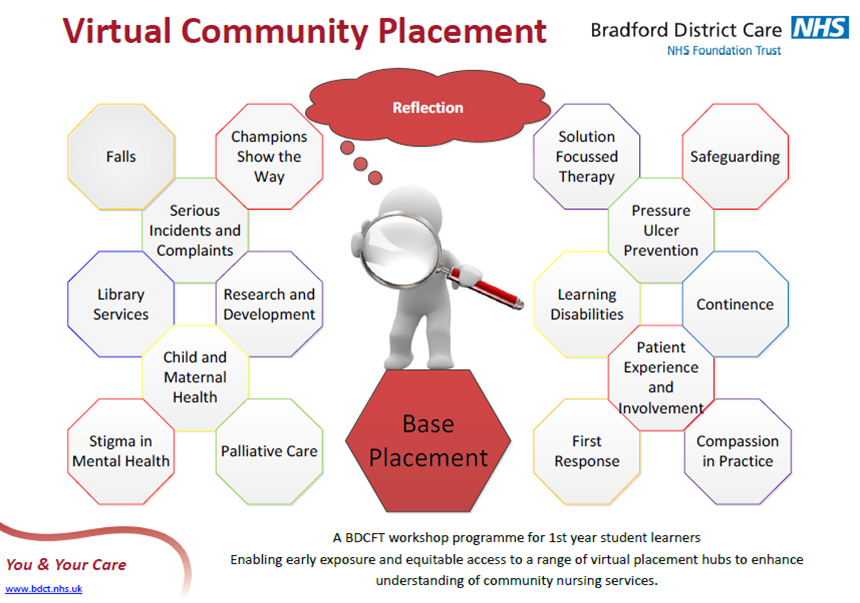The NMC (2010) Standards for Pre- Registration Education for Nursing identify that for registration, in addition to the outcomes that the student requires to demonstrate in their chosen field of practice, the nurse must also demonstrate the achievement of a range of knowledge and skills on:
- People with mental health needs
- People with physical health needs
- People with a learning disability
- Children and young people;
- Maternal health
- People with a long term condition
This has been a continued challenge for both the University and student due to limited opportunity for ALL fields of student nurse to have placement experiences within these areas. So a model was developed to provide an innovative approach in working together as a “virtual placement” which meets the above requirements but also affords a wealth of additional opportunities to build that early partnership with the workforce of the future and afford them early exposure to critical learning.
Students are provided with an online booklet with the learning outcomes for each session. This provides them with a clear link to their Alternative Field experience requirements and measurable objectives. These sessions seek to challenge students pre-conceptions, attitudes and beliefs and allow them an opportunity via group work and interactive practical sessions to explore new skills and learning in a safe environment
There is an expectation that all students complete a reflection (using the NMC Reflective Account Template that all NMC registered nurses must now use as part of the revalidation process). This involves them reflecting on an element of learning and how it can be implemented/transferred into their own placement area.
This BDCFT “virtual placement team” will have engaged with nearly 400 first year nursing students from November 2015 until April 2017. This access to education from the teams who have come together for this virtual placement has not been possible before.
As a result of 16 BDCFT teams working together as a “Virtual Placement” BDCFT can now provide some assurance in terms of evidencing its response to key points raised within the Shape of Caring recommendations: “We need adaptable and responsive workforce who can respond to and adopt latest research and innovation” “ We need to address disparity between mental and physical health education across fields and exposure to LD and community services knowledge”(Shape of Caring 2015)
All workshops provide additional references to quoted papers and latest guidance for the students to follow up. They also provide examples of trust projects/service interventions which have been nurse/support worker led to illustrate how innovation can come from front facing roles across all bandings.

